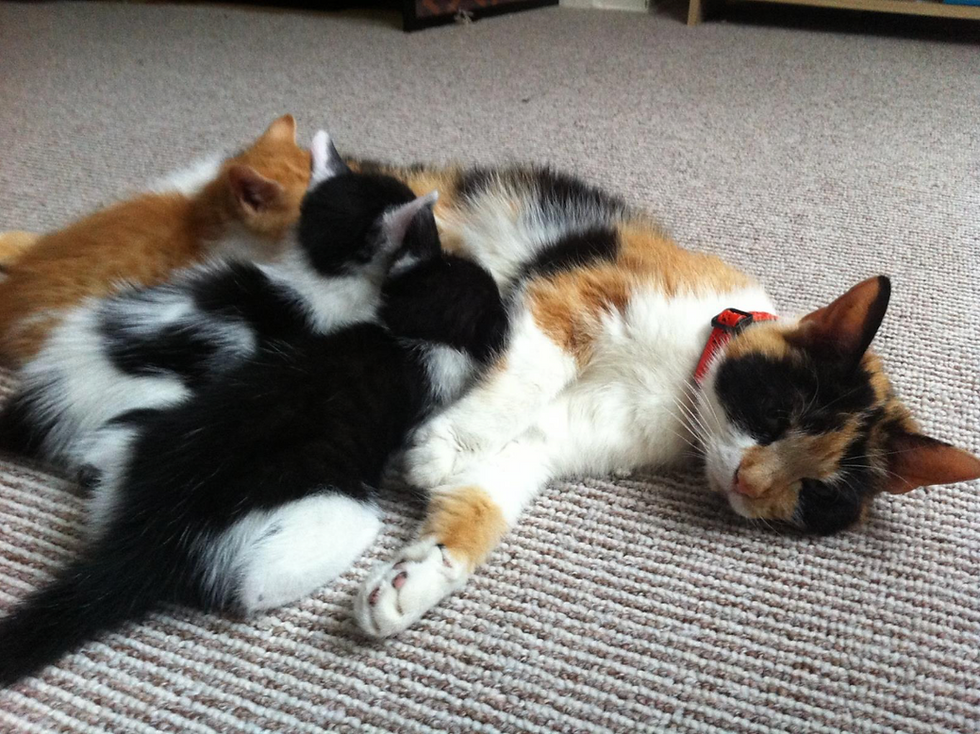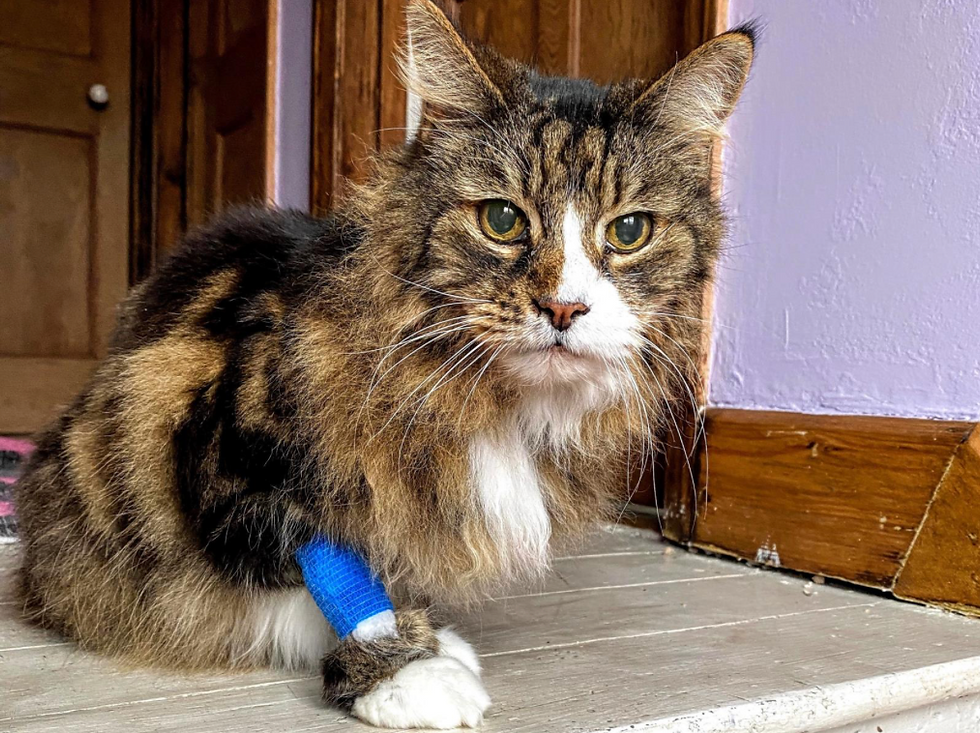Fostering cats is so rewarding, it's like free therapy
- Jennifer Sizeland

- Sep 3, 2025
- 5 min read
Updated: Sep 9, 2025
Trigger Warning: This article briefly mentions suicide.
Every cat that I have helped has changed me in some way
On many occasions in my life, I’ve needed help. Suicidal ideation, self-harm, anxiety, and depression have provided punctuation for the years I’ve lived through. Now, looking after animals lets me concentrate on something outside myself.
An OCD diagnosis in my thirties helped me understand my brain much better. However, since this is more of a condition to be managed than cured, I had to think about what would truly help me. I’d never considered ‘animal therapy’ before, but I've been rescuing creatures since I was a child, so it felt natural for me to spontaneously gravitate towards it.
As a writer, fostering cats has been a lifeline to help manage my anxiety and OCD. I believe that there is nothing quite like snuggling up with a furry friend on the sofa.
As a child, school was pretty monotonous for me, and I was quite shy, so having my pet, Tara, was a window into a more loving world than the one that I inhabited. She was a West Highland white terrier that I unfortunately had to give up after only three weeks because of my mum’s allergy. So, once I bought my first house, I was desperate to have a pet of my own to make up for the childhood pet I always wished I could’ve kept.

So, I felt like it was fate when, a few days after moving into my new house, a pregnant stray turned up at my back door. We never found the owner, and the cat walked into our house and gave birth to three kittens during an episode of Game of Thrones, and our barely unpacked residence became a hive of activity. Their presence made the house feel like a home, and they inspired hope in me for the future.
After the kittens were rehomed, I realised that I didn’t need to ‘own’ a pet to get enjoyment from the experience, but I did want the opportunity to make their lives better with rehabilitation. That’s why I signed up to be a fosterer. I helped cats with all kinds of problems, from those on end-of-life care to those dealing with skin conditions or victims of abuse. While this sounds completely selfless, I see it as a wholly symbiotic process, whereby I get just as much in return.
However, this doesn’t mean that it’s always an easy road. Feline recovery from trauma can come in fits and starts, as an abused cat needs someone with patience to teach them how to trust humans again. While it doesn’t happen overnight, I see big rewards from the work I do with cats, as even an aggressive animal can learn to love again.

Fostering through my OCD
Keen to improve my mental health, I’ve tried all sorts of hobbies to distract me from my negative or intrusive thoughts, but I’ve found the best thing is to sometimes concentrate on something other than myself. My OCD involves internal compulsive thoughts and obsessions, so my priority is to focus on the ‘real world’ outside of the one created out of worry in my mind. This is where fostering cats comes in, as it is about dealing with a tangible problem that can usually be resolved or helped with time.
I chose to foster cats instead of adopting them, as doing so allows me to help more of them compared to if I owned a pet. It also stretches my understanding to resolve a different issue every time a new cat arrives.

After the stray cat and her kittens were adopted, I wanted to take on a bigger challenge so that I could help more of them and feel proud of that achievement.
When I signed up to be an official fosterer online, the charity responded immediately. They did a home visit to make sure I was suitable, and then a volunteer from the local cat charity arrived with a pet carrier. Inside were two terrified cats who had just been rescued from the home of a woman with addiction issues who had recently passed away. The brother and sister pair were in a sorry state - they were malnourished, flea-ridden, and their hair was falling out.
To avoid scaring them, I put a camera in their room and watched them slowly get braver and start to explore it. Their coats even began to grow back as a more peaceful environment allowed them to stop overgrooming themselves, and once they were in better shape, I took them to the vet for a checkup.
Coaxing them out of hiding
The visit to the vet was a step backwards as they went into hiding again, but at least they were slowly gaining weight and looking healthier.
Then the COVID lockdowns happened, and suddenly I was just as afraid as they were. I started working from home full-time, setting up my office in their room in the hope that they would begin to trust humans again. Whenever I felt worried, I thought about what they’d been through, and it inspired me to be positive.

As I tapped away at my keyboard, they gradually developed the confidence to venture out. In this time, I learned that the key to gaining a pet’s trust is to be very still and avoid sudden movements.
After being allowed their time to adjust, they started to crave the company of my partner and me, approaching us for a tentative greeting or sitting next to us on the sofa. We watched a nightly film during the COVID lockdowns, and they’d lie between us, subtly pushing their noses towards our hands to request a head stroke.
It was an unbelievable transformation, as the only time I’d previously touched them was for the traumatic trip to the vet. Their recovery was a true lesson that proper nutrition, care, time and peace really do heal. I felt that in myself too, that their presence had taught me to be patient with myself for the pain I’d also been through.
Time for a forever home
After four months with me, they were ready to find their forever home. I was sad to say goodbye, but I was grateful for the purpose they had given me in a time of such instability and turmoil.

Now their owner posts pictures of them happy and thriving, so knowing they got the second chance they deserve heals my soul. As someone who knows what it is to come back from trauma, I find peace in their peace.
Since then, I've fostered various characters, safe in the knowledge that each pet is going to a loving home. Then someone else will arrive, making it easier for me to let them go. Being the person who helps them trust again is a true privilege.
As someone with lifelong mental health issues, it's been incredible therapy to watch the change in them because with cats, much like humans, a little bit of love goes a very long way.
This article has been sponsored by the Psychiatry Research Trust, who are dedicated to supporting young scientists in their groundbreaking research efforts within the field of mental health. If you wish to support their work, please consider donating.




